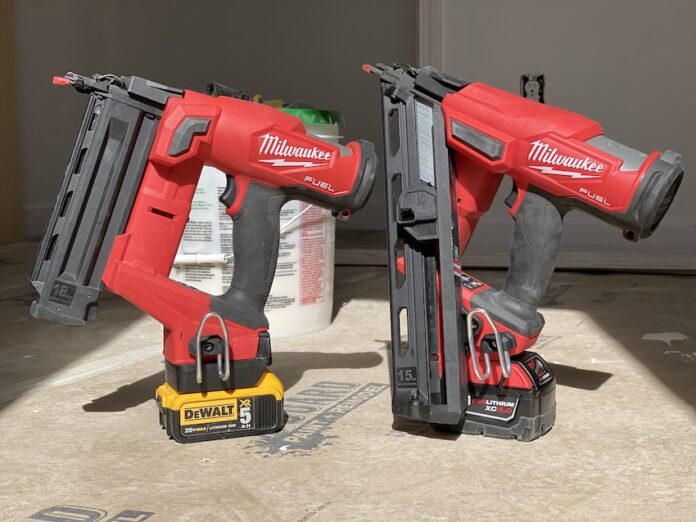
Like I always say, “The freedom of cordless is amazing, but being tied to any one tool brand because of batteries sucks.”
Enter third-party battery adapters..
I don’t need to ask manufacturers if it’s okay to use their tools or batteries with adapters because the answer is in every tool manual. They all say the same thing in the “Battery Use and Care” section: only use batteries and chargers specified by the manufacturer of the tool.
Battery Adapters Risk/Reward
The main risk is that battery adapters may disrupt communication between the tool and battery, disabling or limiting the electronic protection system (EPS).
This could lead to burning out a battery or tool—or, worse, a battery spewing lithium goo all over your face. And if a tool or battery fails, you’ll never know for sure if the adapter was to blame.
Potential rewards include, but are not limited to, the slim chance that battery juice to the head unlocks mutant superpowers, or more practically, the ability to use any tool brand without buying new batteries or carrying multiple chargers.
What does an EPS do?
An electronic protection system protects the battery and/or tool from overloading, overheating, and over-discharge.
Overloading: According to Makita, this occurs when “the tool is operated in a manner that causes it to draw abnormally high current.” The EPS cuts power, stalling the tool.
Overheating: The enemy of runtime, overheating triggers the EPS to shut down the tool.
Over-discharging: This can reduce a battery’s rechargeable lifespan or even turn it into a brick unable to take a charge.
Let’s Look at a Few Systems
Milwaukee
Milwaukee’s Redlink Plus is featured on many, but not all, of their current cordless tools. For example, the 2630-20 6.5″ circular saw doesn’t have Redlink or mention any EPS in its manual.
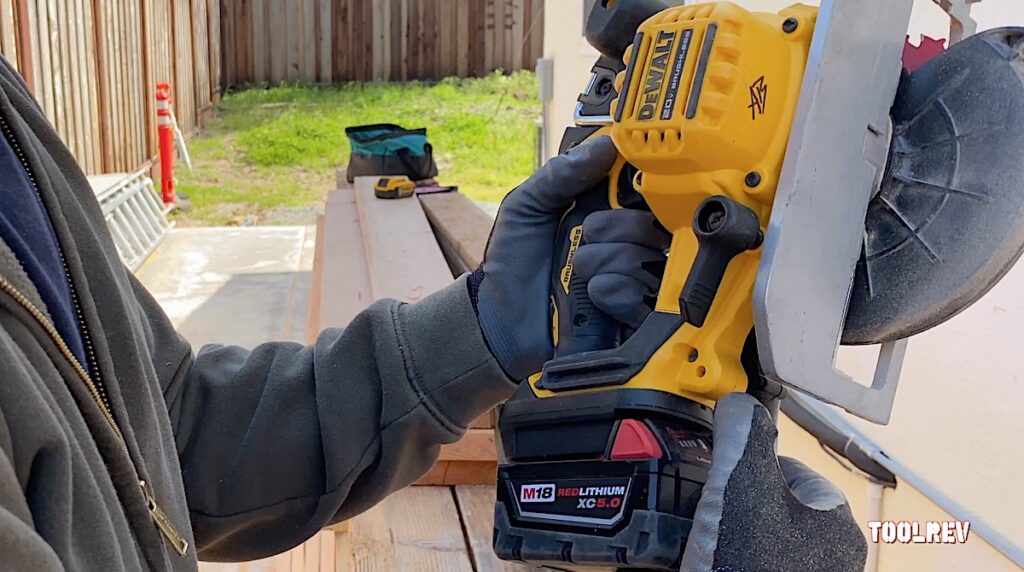
However, their Redlithium XC and higher batteries have built-in Redlink, and word on the street is that it protects them even on non-Milwaukee tools.
Side note: In our comparison videos, we’ve seen Milwaukee batteries on Milwaukee saws time out 2–3 times more often than Makita and DeWalt on their respective 20V batteries. It seems Redlink Plus is critical to protect Milwaukee batteries from Milwaukee tools, which are dialed up to compete with DeWalt’s 60V and Makita’s 40V tools that run longer and cooler without timing out. But I digress.
Makita
Makita’s STAR system claims that when STAR batteries are paired with Makita tools featuring a star symbol or yellow terminal, you get “added protection” through enhanced communication.
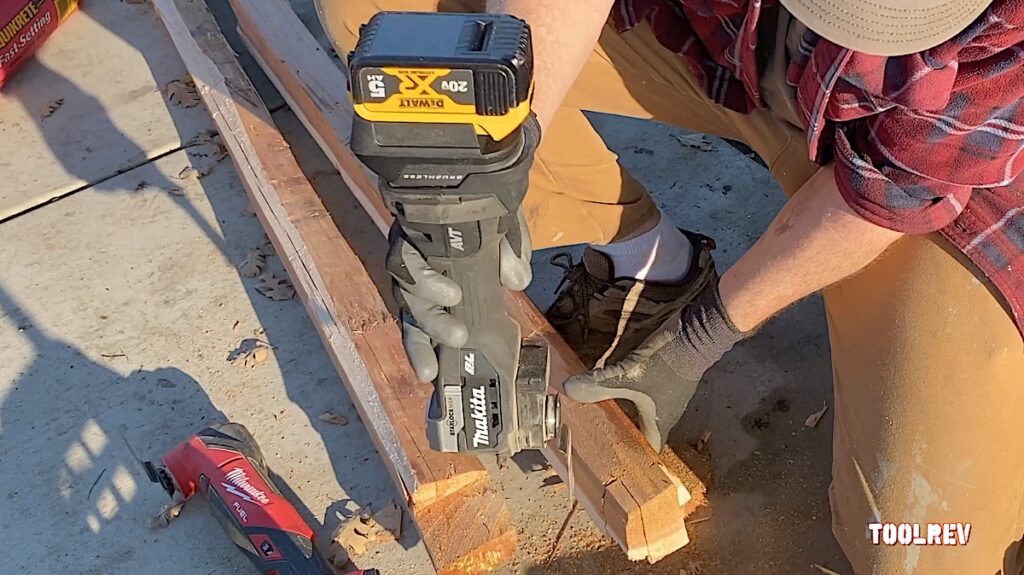
Do STAR batteries prevent deep discharge through an adapter on non-Makita tools? We’ll test that in an upcoming adapter video and post it here, so stay tuned.
DeWalt
All DeWalt lithium-ion tools have an EPS that protects the battery pack against overloading, overheating, or deep discharge.
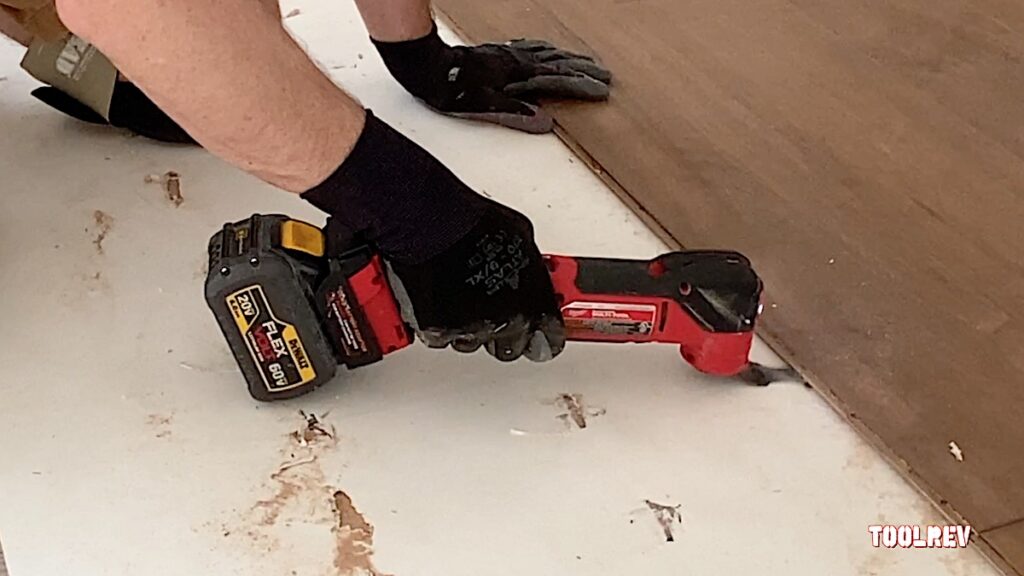
So DeWalt batteries on DeWalt tools have protection but I’ve read somewhere in DeWalt’s literature that running their lithium batteries past the slow down point reduces rechargeable lifespan, so it seems there may not be a low-voltage shut-off in the battery itself.
I can tell you this, I once smoked a DeWalt 20V 3/8″ drill mixing thinset and the EPS didn’t do anything to stop that tool from overheating. I mean it was smoking hot and running a DeWalt battery so what happened with the EPS in that situation?
Bottom Line
The main risk of battery adapters seems to be the battery overheating or over-discharging. I saw a vid where a guy showed sparks between an adapter and a tool and someone left a comment on a post saying they lost a battery when their adapter shorted.
If you’re worried about an adapted battery shorting out or overheating and exploding in your face, I can’t guarantee it won’t happen. For me, adapters seem safe enough if used thoughtfully, and I like/love them for certain tools.
Battery Adapters I Use
ToolRev earns commissions on purchases made through our links.
FirstPower: Converts Milwaukee and DeWalt 18V/20V Batteries to Makita 18V Tools
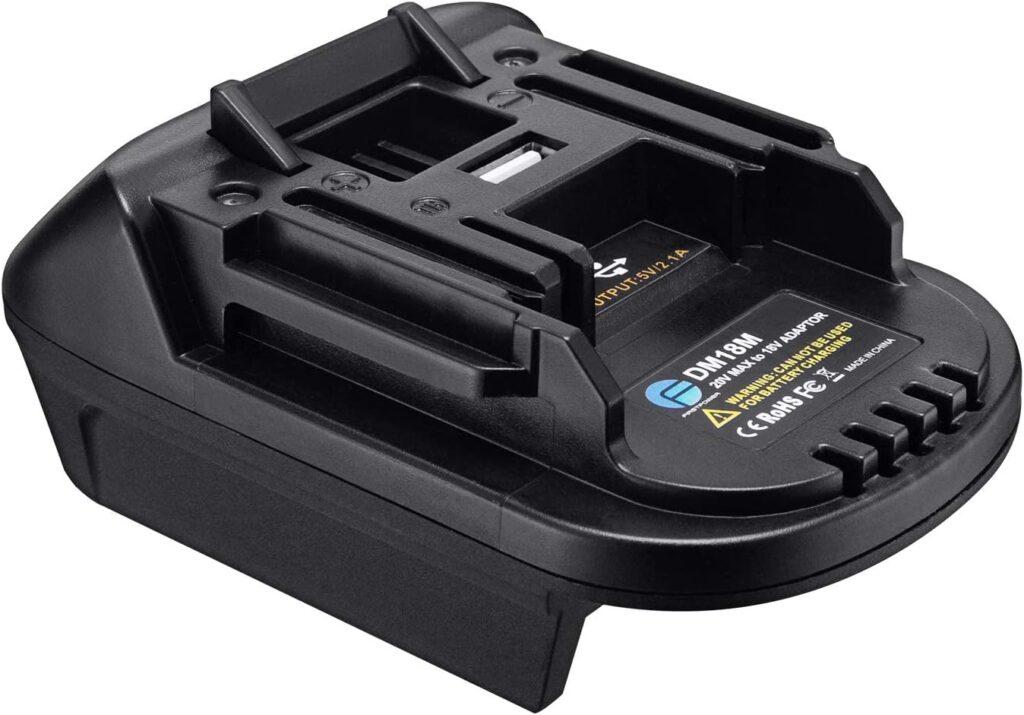
LQ-18RY: Converts Dewalt 20V Batteries to RIDGID 18V Tools
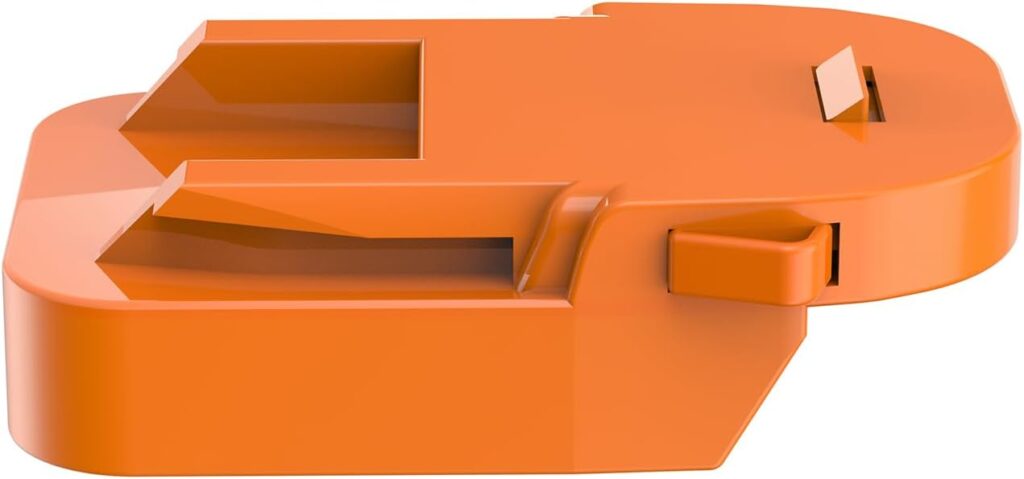
Alian MIL18DL: Converts Milwaukee 18V Batteries to DeWalt 20V Tools
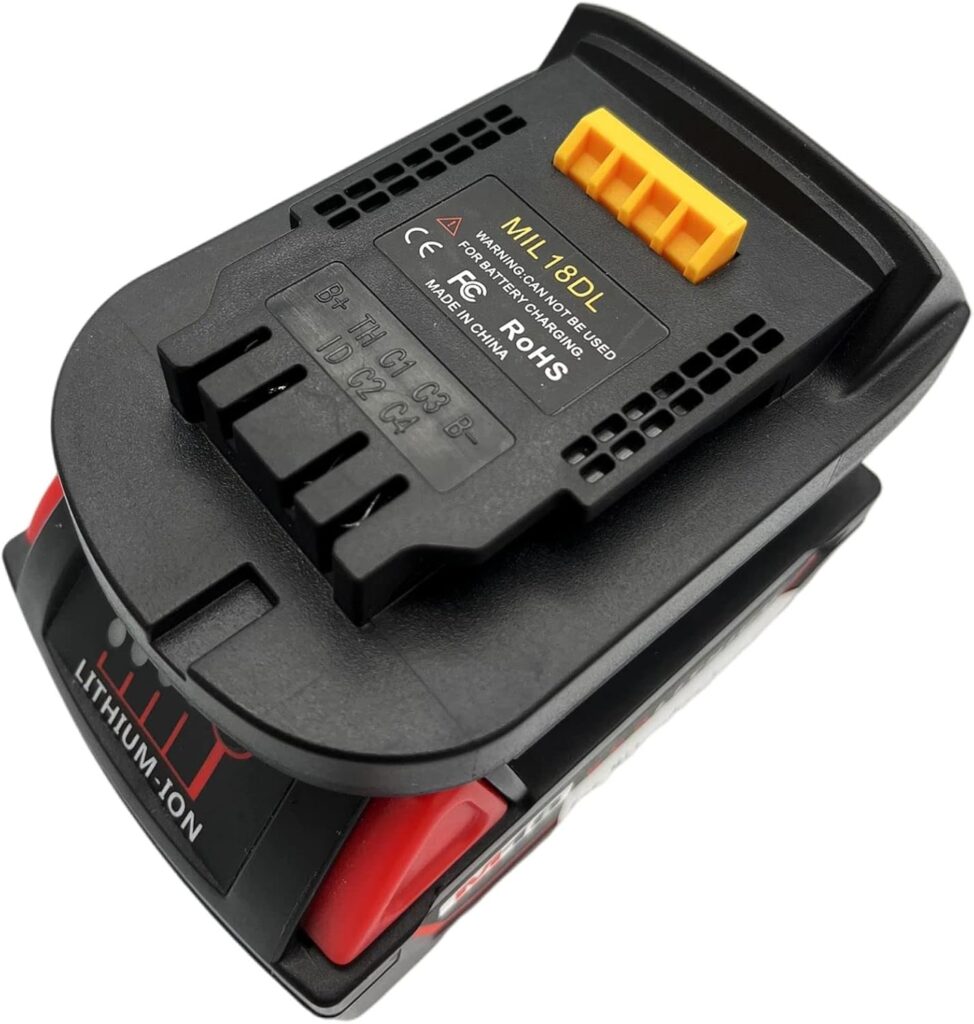
Stay tuned for the upcoming battery adapters vid and let us know your thoughts in the comments. See ya!








Oh what a nice article.